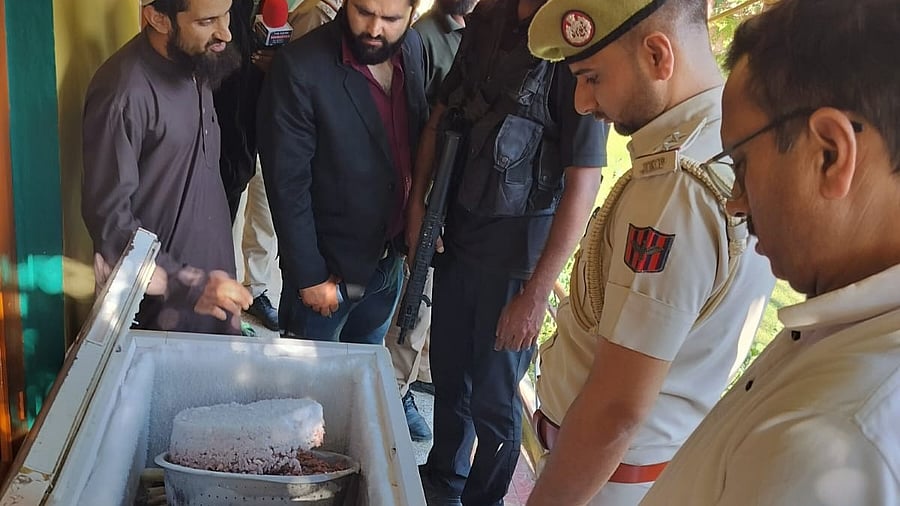
Flying squads are conducting surprise inspections of meat markets and godowns across Srinagar.
Credit: DH Photo
Srinagar: In a city where tourism and cuisine go hand in hand, Srinagar’s reputation has come under strain after repeated seizures of rotten meat.
A month after thousands of kilograms of decomposed meat were confiscated in surprise raids, the police, along with the Food Safety Department, have intensified their crackdown on the illegal trade, registering fresh FIRs and forming dedicated flying squads to restore public confidence in both food safety and the Valley’s hospitality sector.
In the latest action, six FIRs have been registered against individuals and traders found selling unhygienic meat in violation of public health laws. Cases have been filed under provisions of the Bharatiya Nyaya Sanhita (BNS) and the Food Safety Act, a police spokesperson said. Significant fresh recoveries of rotten meat have also been made and destroyed under protocol, with flying squads now conducting surprise inspections of meat markets and godowns across the city.
The drive follows the shocking August 2025 seizures, when authorities confiscated thousands of kilograms of decomposed meat from multiple localities in Srinagar. That bust had sent ripples through the Valley, exposing how a section of traders was allegedly recycling stale meat back into the market, risking mass outbreaks of food poisoning and gastroenteritis.
Public anger has remained intense. “We cannot afford to eat poison in the name of meat,” said Altaf Ahmad, a resident of the old city.
Senior Superintendent of Police (SSP), Srinagar, G V Sundeep Chakravarthy, said the force is treating the racket as a public health emergency. “The rotten meat racket has shaken people’s trust in one of the most essential parts of their daily diet. We are determined to restore faith, and anyone involved will face the strictest possible action,” he said.
But the scandal is also threatening Srinagar’s hospitality industry, central to its tourist appeal. Several restaurants in popular tourist zones such as Boulevard and Rajbagh have quietly introduced vegetarian-only menus to reassure wary diners.
“Tourists come to Kashmir for wazwan and traditional mutton dishes. If confidence in meat collapses, it could hurt not just restaurants but Kashmir’s image as a food destination,” said a leading hotelier.
For the police, the ongoing crackdown reflects an expanding role beyond traditional law-and-order duties, with recent interventions targeting drug abuse, traffic violations, and now food adulteration — issues directly touching daily life.
“This is not just about enforcing law, but about safeguarding public trust,” Chakravarthy stressed.
With flying squads active and FIRs mounting, the administration hopes to clean up Srinagar’s food supply chain and preserve the Valley’s culinary identity. For residents and tourists alike, the expectation is simple: that what lands on their plates is safe to eat.